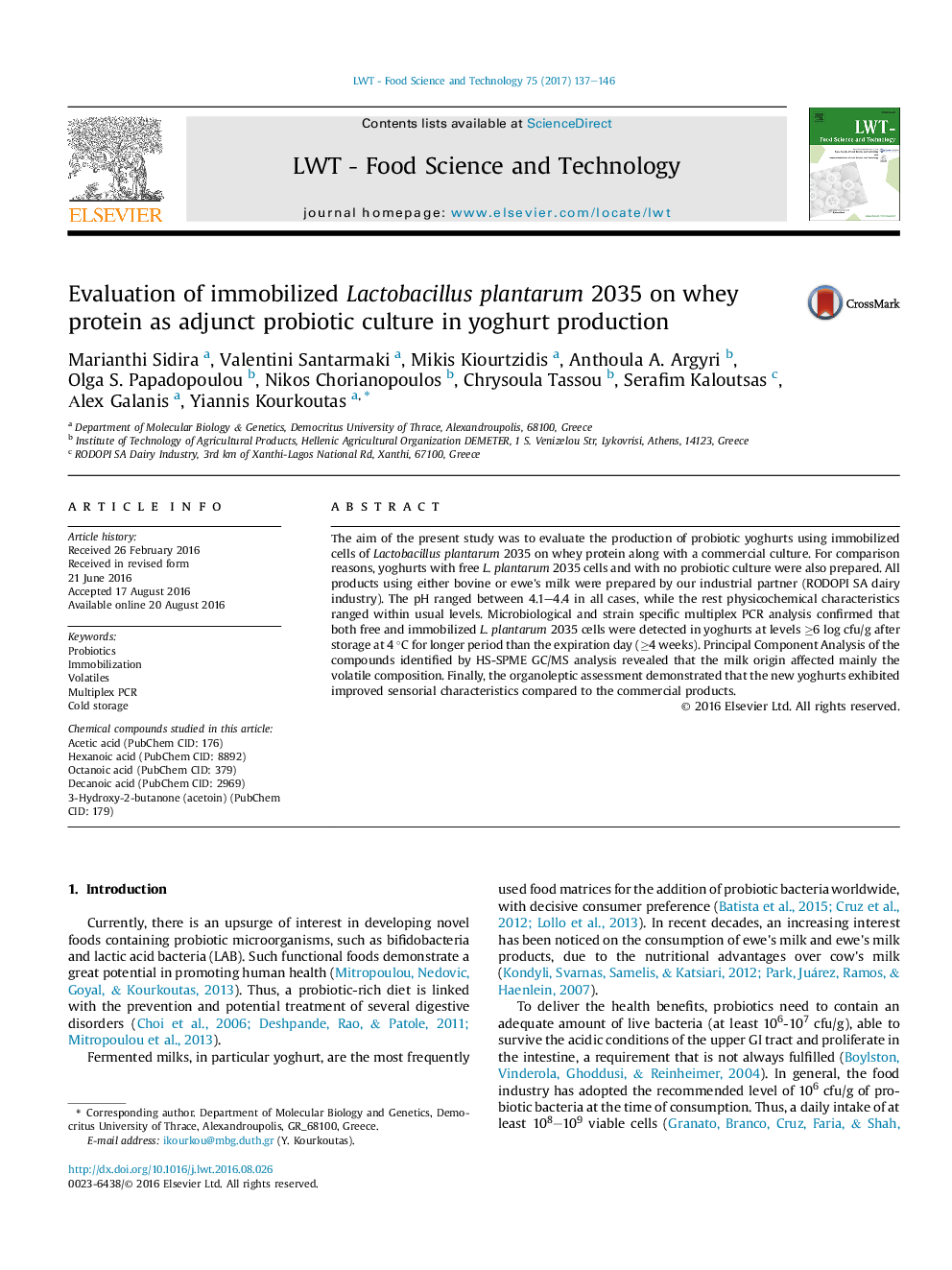| Article ID | Journal | Published Year | Pages | File Type |
|---|---|---|---|---|
| 6400128 | LWT - Food Science and Technology | 2017 | 10 Pages |
â¢Probiotic yoghurts with immobilized L. plantarum on whey protein were produced.â¢L. plantarum survived at levels â¥6 log cfu/g after 4 weeks of cold storage.â¢The milk origin (bovine or ewe's) affected mainly the volatile composition.â¢The new yoghurts exhibited improved sensorial characteristics.
Τhe aim of the present study was to evaluate the production of probiotic yoghurts using immobilized cells of Lactobacillus plantarum 2035 on whey protein along with a commercial culture. For comparison reasons, yoghurts with free L. plantarum 2035 cells and with no probiotic culture were also prepared. All products using either bovine or ewe's milk were prepared by our industrial partner (RODOPI SA dairy industry). The pH ranged between 4.1-4.4 in all cases, while the rest physicochemical characteristics ranged within usual levels. Microbiological and strain specific multiplex PCR analysis confirmed that both free and immobilized L. plantarum 2035 cells were detected in yoghurts at levels â¥6 log cfu/g after storage at 4 °C for longer period than the expiration day (â¥4 weeks). Principal Component Analysis of the compounds identified by HS-SPME GC/MS analysis revealed that the milk origin affected mainly the volatile composition. Finally, the organoleptic assessment demonstrated that the new yoghurts exhibited improved sensorial characteristics compared to the commercial products.
